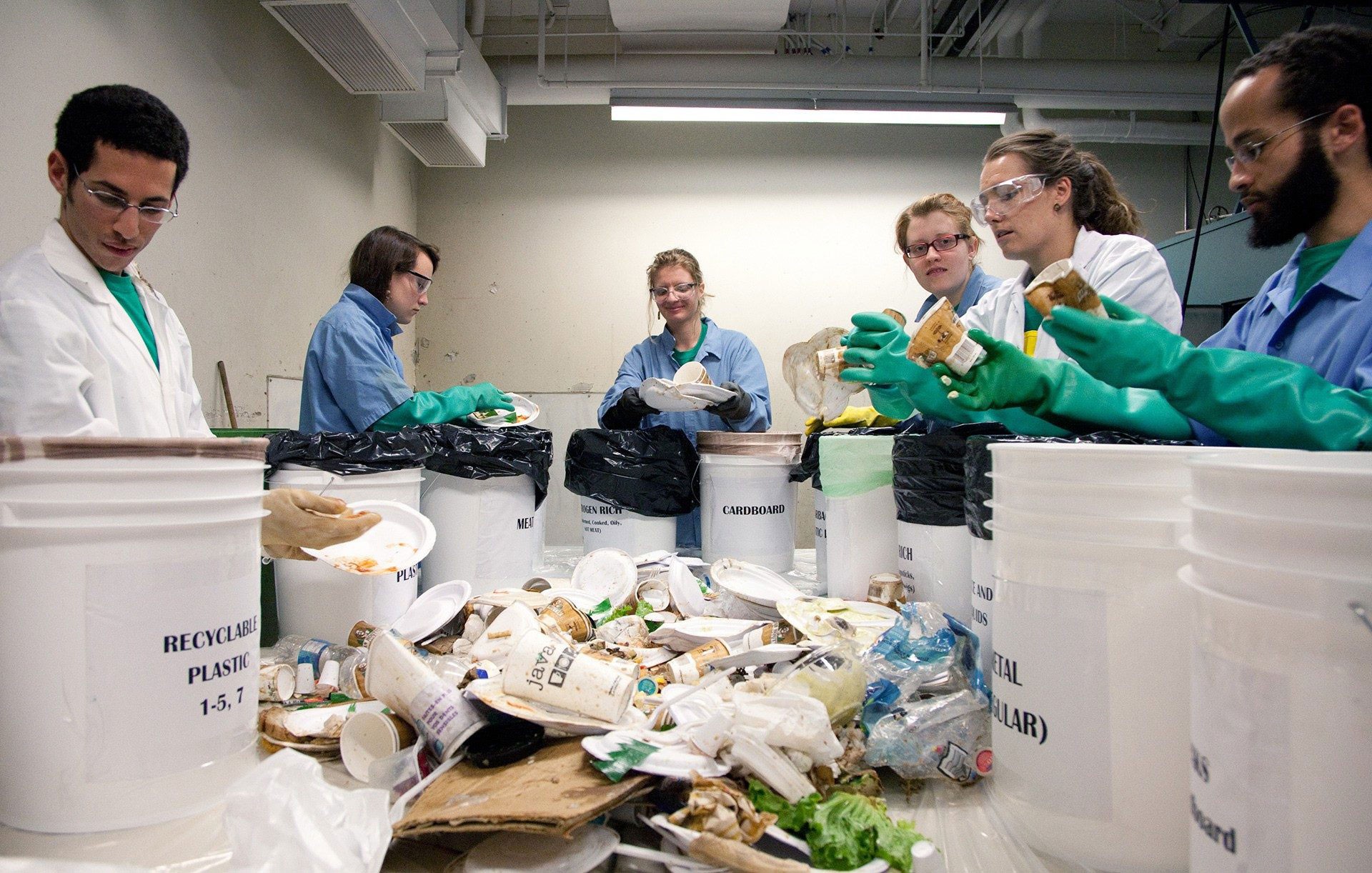Faisal Shennib:
My inspiration
 Waste audits are a labour-intensive tool for uncovering trends in waste at the community scale through data. Artificial intelligence and the Internet of Things (IoT) could play a similar role by harnessing real-time waste data from smart bins, IoT sensors and mobile apps. Credit: Hannah McCormick.
Waste audits are a labour-intensive tool for uncovering trends in waste at the community scale through data. Artificial intelligence and the Internet of Things (IoT) could play a similar role by harnessing real-time waste data from smart bins, IoT sensors and mobile apps. Credit: Hannah McCormick.
Can artificial intelligence, Internet of Things and Open Data help communities achieve zero waste?
I’ve been fascinated by the ability for data to galvanize sustainable action ever since I participated in something called “waste auditing”, a methodical and labour-intensive process of sorting and weighing waste by category. Through it, we learn that most waste is recoverable. Globally, we bury and incinerate trillions of dollars' worth of materials. We know that policy, education and basic infrastructure are essential to curbing waste. But we’re still failing to see many success stories. We also know that new digital, data-driven technologies such as artificial intelligence are driving consumption. Can this same tech be harnessed for sustainability?